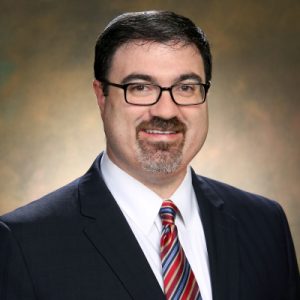New rabbis are often given advice. One sage suggestion: steer clear of divisive issues and partisan politics. To be honest, the last six months have not been easy for a new rabbi who is trying to learn the landscape of our congregation and Shalom Park. Between protests over the killing of Keith Lamont Scott, which also revealed deep-rooted racial inequities in our city, and the painful and contentious state and national election – it’s often felt like I am tiptoeing through a minefield.
Over the last six months I’ve learned that Temple Beth El is a diverse congregation. We are proud that our congregation has responded to God’s call to spread justice and righteousness. Our members want the promise of tomorrow to exist for every human being, because we are created in God’s image and endowed with certain unalienable rights. As a community of faith in Charlotte, North Carolina, we have a vested interest in the potential and promise of our city, our state, and our country.
Yet, a significant number of congregants have expressed worry and concern about our polarized political and cultural environment. Devastated by the rise in anti-Semitism and hate speech, it is not hyperbole to say that every day since my arrival, Temple Beth El members have commented to me about concerns over extremism, toxic partisan politics, the future of our country, Israel, international affairs, and the state of the environment.
One of the destructive effects of this political climate and of extremism, is that it gives disagreement and discussion a bad name. Making things more complicated, we are living in an age of echo-chambers where the algorithms of social media reflect only the news sources that confirm our opinions, not challenge our opinions.
As a congregation, we will continue to speak out against hate and on behalf of the marginalized. But we must also teach the world about the Jewish ethic of reasoned exchanges of ideas between people. The Talmud places sanctity in the wisdom of multiple perspectives. Our faith tradition has something to teach the world about what the Mishnah calls “disagreements for the sake of Heaven.” Concerns and frustrations are the beginnings of conversations and not the end.
I invite you to participate in two opportunities for Jewish worship, learning, dialogue, and discussion. On Friday evening, January 13th, please join us for Justice Shabbat. Mr. James Ford, a CMS Teacher of the Year, Charlottean of the Year, and North Carolinian of the Year will be our guest speaker. Mr. Ford is an inspirational leader and powerful advocate. Following services, we invite you to dinner. Over dinner, we will engage Mr. Ford and each other in a discussion about racial inequity in Charlotte and how we understand the systemic tensions that re-emerged after the events in September. Click here, to register for the dinner. On Saturday morning, at 9:00 AM, we will meet at First United Methodist and join together for prayer with other communities of faith and then march together, praying with our feet, in unity and solidarity with the values that Dr. Martin Luther King Jr, taught us. Check the Temple calendar for more information.
Then, on the morning after the inauguration, on Saturday, January 21st at 9:00 AM, we will learn and discuss about our Jewish values of honesty and respect. Following our discussion there will be a brunch (click here to RSVP) and an opportunity for worship at our dynamic Congregational Shabbat.
The Hebrew, Beit Kenesset, and the Greek, synagoga literally mean, “House of Assembly.” Our congregation continues to live a Jewish ethic that has lasted over two-thousand years by being a place where learning, prayer, and deeds change our understanding of ourselves, our world, and our responsibilities in it. Join us for Shabbat in January. Learn with us. And help break down the echo-chambers.




